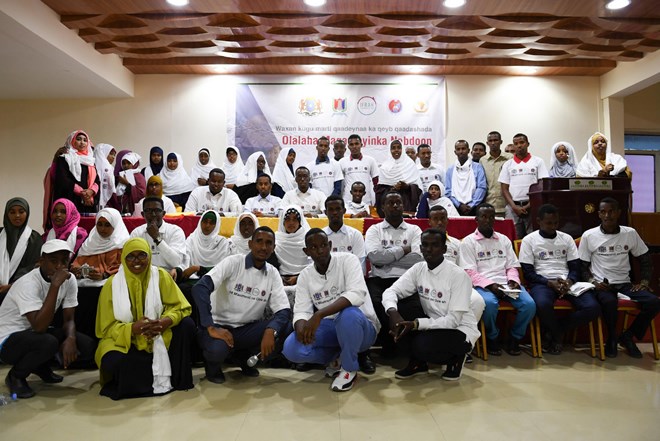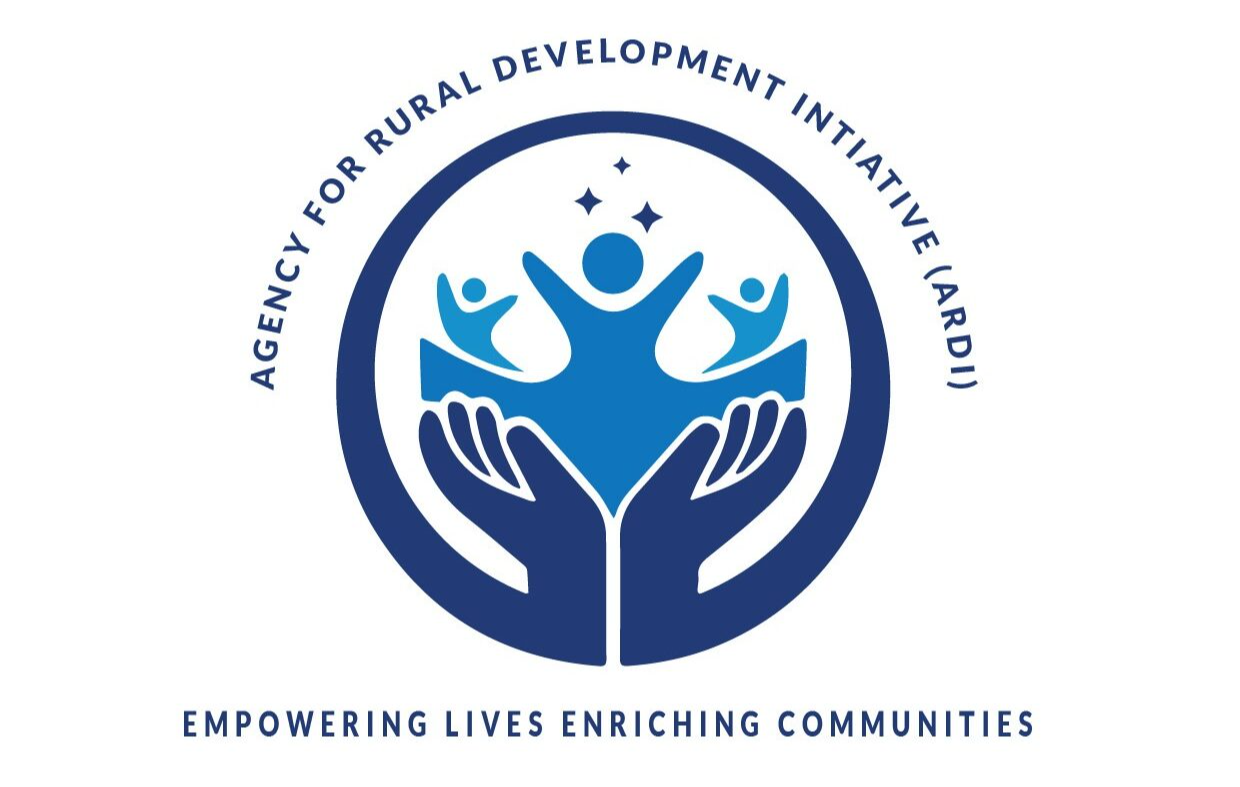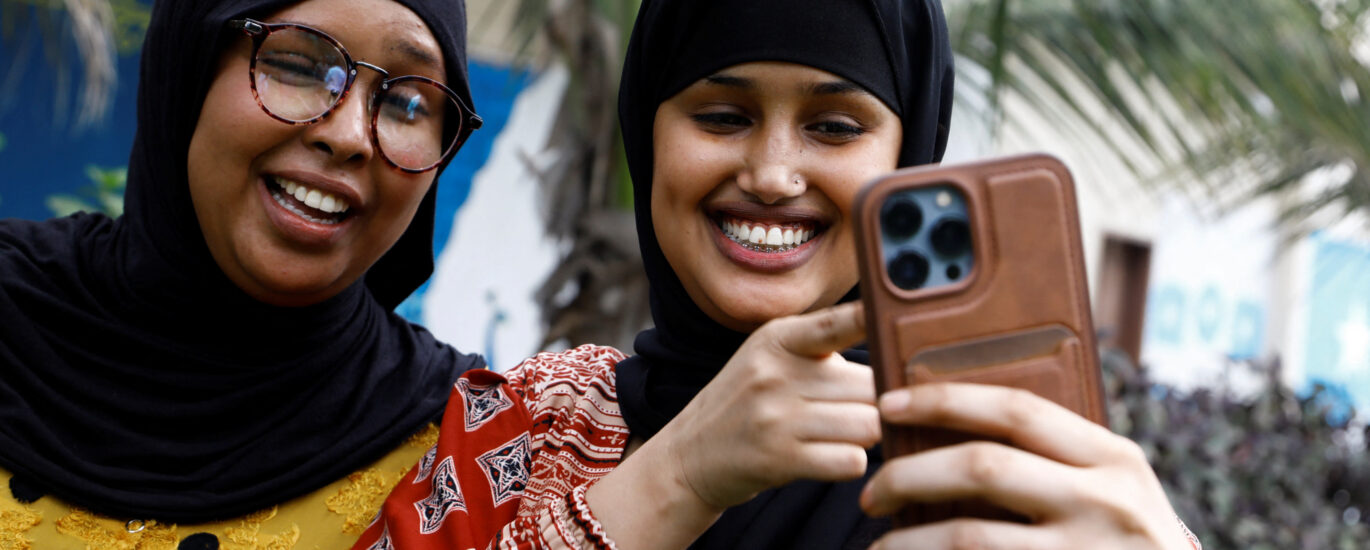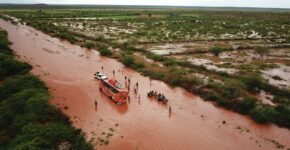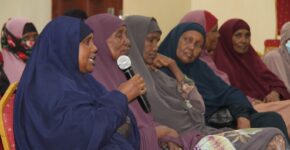Somalia has been in a prolonged violent conflict that has eroded community trust and confidence, social harmony, a sense of activism, constructive dialogue, and solidarity. This has been worsened by unregulated social media widely used by young people. However, the country has been recovering slowly in the last few years. To address these social problems, the Talo Wadaag II Programme organised two days of workshops from 8-9 July 2023 for Benadir women and youth. Talo Wadaag II is a community programme jointly delivered by Interpeace, the Heritage Institute for Policy Studies (HIPS) in Benadir and Galmudug, the Puntland Development Research Center (PDRC) in Puntland, and the Academy for Peace and Development (APD), in Somaliland.
The HIPS’ two-day workshops discussed the role of media and activism in social change, peace, and community harmony. Media workshops emphasised the role of media, particularly social media, in creating a positive atmosphere for social change, promoting peace, diversity in views, and tolerance in the war-stricken Somali society. During sessions, participants elaborated on how youth and women can utilise social media to advance community harmony, peace, state-building, and good governance, and at the same time, how youth can be aware of the negative aspects attached to social media. The workshops also presented opportunities for participants and well-established local experts to interact with each other and have critical and frank discussions on issues concerning the community.
The main workshop objectives included assisting participants in discussing the impact of media on social change, peace, and stability; helping them become aware of the negative impact of social media on society; facilitating interactive discussions on the importance of activism for social change; helping participants advocate for human rights as well as responsibilities; urging them to participate actively in statebuilding, governance, and democratisation; and finally enhancing their critical thinking and questioning mass media information.
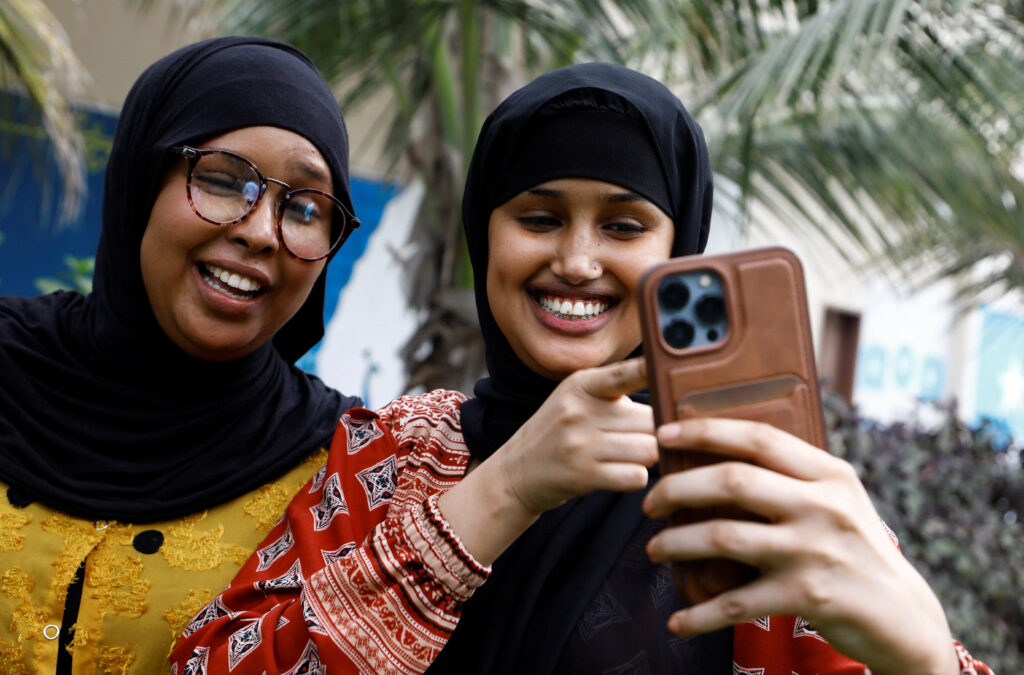
“The workshops have created a friendly, constructive, and community space for dialogue in which they exchanged their experience and insights. While young people’s knowledge and practical experience in social media were huge, older women also shared their living experiences and wisdom linked to social media,” stated Dr. Yusuf Sheikh Omar, the Director of HIPS’ Talo Wadaag II programme.
For instance, a woman named Farhia Ali Hajji from the Somali Women Development Centre expressed how social media has influenced her thoughts and feelings. She was inspired by the disheartening story of a young girl she saw on social media. This young girl was carrying a jerrycan of water because her family could not find an alternative water source. To help her, someone posted this young girl’s life difficulties on social media, a post that has finally changed the young girl’s life. People who watched that post offered a lot of support to the girl’s family, which enabled the girl to enrol at school and her family to build a house and start a small business. “That really touched me, and it clearly shows how social media is a powerful tool if used properly,” recounted Farhia.
Several young people also voiced the positive impact of the workshop on the participants. As Sumaya Mohamed from the Somali Youth Civic Organisation put it: “One valuable takeaway I gained from this programme is the ability to effectively advocate for diverse societal issues and represent the people’s interests. Another aspect of the programme that greatly resonated with me was…the media’s significant influence in driving social change.”
Sharing knowledge and experiences also helped participants increase their awareness of the enormous negative impact of social media on society, particularly youth. “I discovered that young people spend a lot of time on social media with the goal of merely scrolling and not learning or taking advantage of it. “They also post other people’s private information without their knowledge,” said Abdirahman Mohamed Ahmed from the Somali Youth Development Network.
Dr. Yusuf Omar explained that the interactive workshop sessions have assisted participants in exchanging touching stories drawn from their everyday life experiences related to social media. Such shared knowledge has deepened their awareness and understanding of the power of media and the culture of activism as critical factors for social transformation. The workshops have also broadened participants’ perspectives and sharpened their skills in advocating for and promoting much-needed societal transformation. “I have learned so many things, such as being an activist and advocating for voiceless people… Social media can be useful with huge advantages, but sometimes it can have disadvantages,” said Aisha Yusuf Hassan from the Somali Youth Development Network. In another account, Ms. Magda Abdi from Benadir Women’s Human Rights and Development Organisation expressed her views regarding active citizens’ role in social change by saying, “What interested me the most was that an active citizen is able to make a lot of positive changes in their country”.
Ms. Saida Hassan, a research assistant at Talo Wadaag, has confirmed the participants’ testimonials. “I felt that both women and youth have shown a lot of interest in civic education, activism, and social media workshops. Their body language and comments demonstrated how engaged they were. I have no doubt that these workshops have increased their awareness of women’s and youth’s expected roles in statebuilding, politics, and social change in general. They have learned if there will be an election in the future, why they will vote, and the quality of whom they will vote.”
